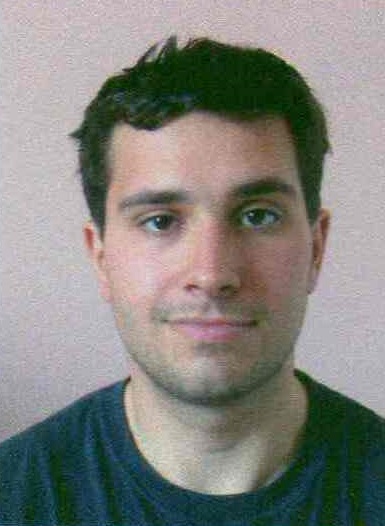
Curriculum vitae
| Dr. Ujma Przemyslaw Péter
DOB 1988. 04. 11.
Position: Assistant professor
Education:
PhD (Health Science) – 2016, Semmelweis University
Conference interpreter – 2012, Budapest University of Technology and Economics
Psychologist – 2011, Budapest University of Technology and Economics
Philologist in Human Behavior – 2009, Pázmány Péter Catholic University
Teaching:
Seminar tutor: Orvosi pszichológia (Hungarian medical program), Medical Psychology, Medical Communication (English medical program)
Course administrator, Zahnmedizinische Psychologie (German dental medicine program)
Other work:
Research fellow: National Institute of Clinical Neuroscience
Lecturer: Kodolányi János University College
Editor: Sleep Spindles & Cortical Up States (Akadémiai Kiadó)
Known foreign languages:
English, German, Italian
Research interests:
individual characteristics of the sleep EEG
sleep and cognition
sleep physiology
intelligence – nomology, psychometrics, epidemiology
International awards
European College of Neuropharmacology (ECNP) Seminar Award (2016)
Mensa Award for Excellence in Research (2015)
Selected publications
Pótári Adrián, Ujma Péter P, Konrad Boris N, Genzel Lisa, Simor Péter, Körmendi János, Gombos Ferenc, Steiger Axel, Dresler Martin, Bódizs Róbert. Age-related changes in sleep EEG are attenuated in highly intelligent individuals. NEUROIMAGE 2017 Feb 1;146:554-560
Ujma Péter P, Bódizs Róbert, Gombos Ferenc, Stintzing Johannes, Konrad Boris N, Genzel Lisa, Steiger Axel, Dresler Martin. Nap sleep spindle correlates of intelligence. SCIENTIFIC REPORTS 5: Paper 17159. 8 p. (2015)
Ujma Péter P, Konrad BN, Genzel L, Bleifuss A, Simor P, Potari A, Kormendi J, Gombos F, Steiger A, Bodizs R, Dresler M. Sleep spindles and intelligence: evidence for a sexual dimorphism. JOURNAL OF NEUROSCIENCE 34:(49) pp. 16358-16368. (2014)
Simor Péter, Horváth Klára, Ujma Péter P, Gombos Ferenc, Bódizs Róbert. Fluctuations between sleep and wakefulness: Wake-like features indicated by increased EEG alpha power during different sleep stages in nightmare disorder. BIOLOGICAL PSYCHOLOGY 94:(3) pp. 592-600. (2013)
|